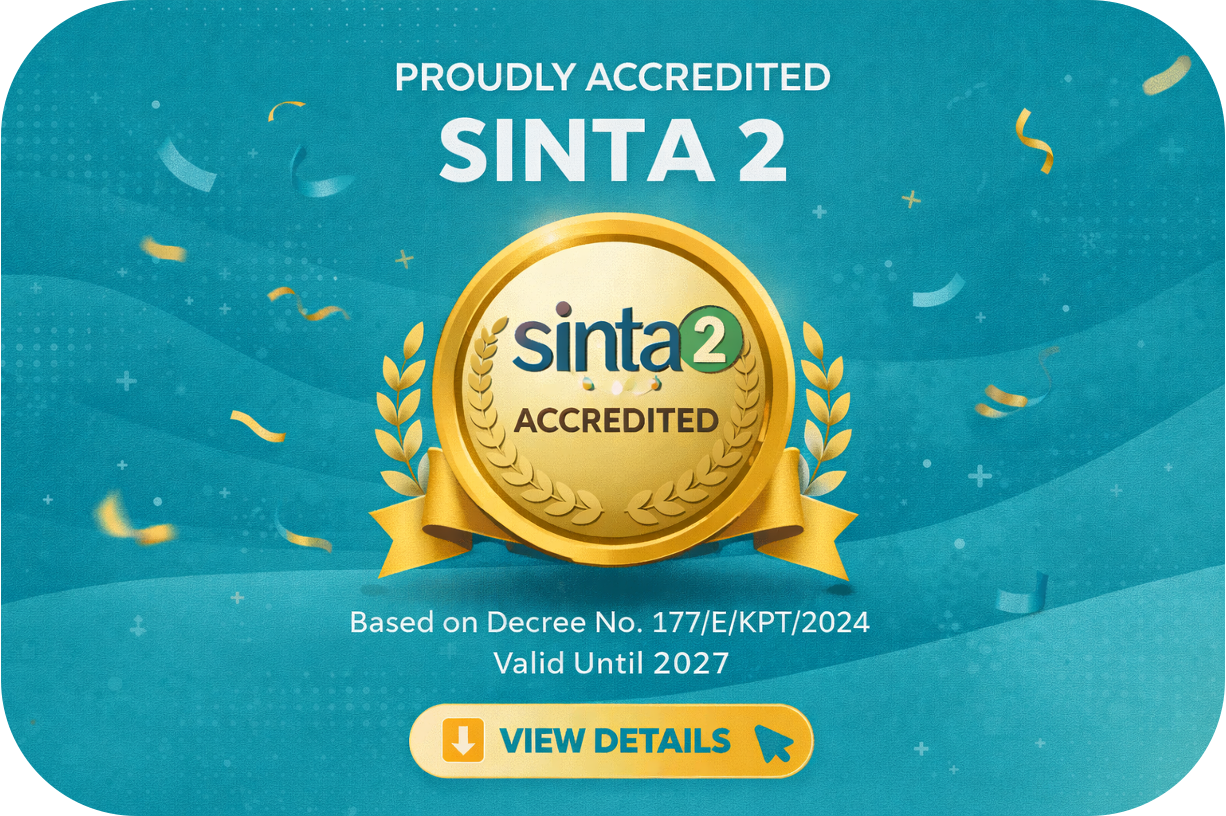Sustainability and Halal: Procedure, Profit and Ethical Practice
DOI:
https://doi.org/10.21580/jdmhi.2021.3.2.9586Keywords:
halal, ethics, exchange, sustainability, precarity.Abstract
Halal certification is a technological and technocratic transformation that facilitates increasingly complex food production and global supply chain management. However, the discourse and materiality of global trade and the growth of consumers for which halal certification is in demand have been the target of ethical criticism that puts forward the vulnerabilities of human, non-human, and environmental relations. This paper proceeds through some steps to elucidate questions of halal ethics in practice, halal certification, and Muslim trade and exchange networks. The research method uses a descriptive qualitative approach, using library sources. The results of the analysis and discussion show that the halal discursive tradition that centralizes intra-Muslim networking, trade, and exchange, is significant to consider the ethical stakes of halal certification for marginalized and precarious Muslim populations around the world. Drawing on ethnographic insights on the meat market in Mumbai, I argue that exclusive political intimacy and economic growth mean halal certification can play a part in the marginalization of the Muslim workforce and trade in the city. Therefore, the question of sustainability and halalness must consider the new formation of halal's ethical requirements to bridge the gap between the ethics of trade and intra-Muslim exchange and global trade conditions.
Downloads
References
Afendi, A. (2020). The Effect of Halal Certification, Halal Awareness and Product Knowledge on Purchase Decisions for Halal Fashion Products. Journal of Digital Marketing and Halal Industry, 2(2), 145. https://doi.org/10.21580/jdmhi.2020.2.2.6160
Ahmad, Z. (2013). Marginal Occupations and Modernising Cities: Muslim Butchers in Urban India. Economic & Political Weekly, XLVIII(32), 121-131.
Ahmad, Z. (2014). Delhi's Meatscapes: Cultural Politics of Meat in a Globalizing City. IIM Kozhikode Society & Management Review, 3(1), 21-31.
al-Munajjid, S. M. S. Ruling on meat slaughtered by the Shi'ah (Raafidis). Retrieved 18 April, 2018, from https://islamqa.info/en/60046.
Amalia, F. (2019). The Role of Religiosity on Halal Product Purchasing Decision Case Study : Wardah Cosmetics. Journal of Digital Marketing and Halal Industry, 1(1), 19–24. https://doi.org/10.21580/jdmhi.2019.1.1.4774
Anand, N. (2012). Municipal disconnect: On abject water and its urban infrastructures. Ethnography, 13(4), 487-509.
Aniqoh, N. A. F. A. (2019). A Strategy Framwork For Deciding Between Alliances Or Acquisition Of Johnson & Johnson Pharmaceutical Company (Case Study: Strategy Farmwork of Johnson & Johnson And Cipla Inc in The Production of Anti-Infectious Drugs). Journal of Digital Marketing and Halal Industry, 1(1), 25–46. https://doi.org/10.21580/jdmhi.2019.1.1.4730
Appadurai, A. (2000). Spectral Housing and Urban Cleansing: Notes on Millennial Mumbai. Public Culture, 12(3), 627-651.
Armanios, F., & Ergene, B. E. (2018). Halal Food: A History. Oxford: Oxford University Press.
Bergeaud-Blackler, F. (2017). Le Marché halal ou l’invention d’une tradition. Paris: Le Seuil.
Bonne, K., & Verbeke, W. (2008). Religious values informing halal meat production and the control and delivery of halal credence quality. Agriculture and Human Values, 25, 35-47.
Fauzi, M., Azizah, A. N., & Nurfauziyah, L. (2020). The Concept of Ifta ’in Establishing Halal Law (Study of Usul fiqh on Legal Determination Methods). Journal of Digital Marketing and Halal Industry, 1(1), 83. https://doi.org/10.21580/jdmhi.2019.1.1.4776
Fischer, J. (2011). The Halal Frontier: Muslim Consumers in a Globalized Market. New York: Palgrave Macmillan.
Fischer, J. (2016). Islam, Standards, and Technoscience: In Global Halal Zones. New York and London: Routledge.
Bergeaud-Blackler, F., Fischer, J., & Lever, J. (Eds.). (2016). Halal Matters: Islam, politics and markets in global perspective. London and New York: Routledge.
Fataron, Z. A., & Rohmah, H. (2019). Effect Analysis of Trust, Ease, Information Quality, Halal Product on Online Purchase Decision of 2016-2018 Batch Students of Islamic Economics Study Program in UIN Walisongo at Shopee Marketplace. Journal of Digital Marketing and Halal Industry, 1(1), 1–18. https://doi.org/10.21580/jdmhi.2019.1.1.4772
Foucalt, M. (2007). Security, Territory, Population: Lectures at the College De France. New York: Palgrave Macmillan.
Freidberg, S. (2013). Calculating sustainabiilty in supply chain capitalism. Economy and Society, 42(4), 571-596.
Ghassem-Fachandi, P. (2012). Pogrom in Gujarat: Hindu Nationalism and Anti-Muslim Violence in India. Princeton, Oxford: Princeton University Press.
Gunel, G. Spaceship in the Desert: Energy, Climate Change, and Urban Design in Abu Dhabi.
Hirsch, E. (2020). Sustainable Development. Retrieved 14 September, 2021, from https://doi.org/10.1093/acrefore/9780190854584.013.155.
Lever, J. (2018). Consuming halal in the age of globalised mass production: compound practice - knowing what to eat? Proceedings from Rethinking Halal: Genealogy, Current Trends, and New Interpretation, Louvain-la-Neuve.
Mahmood, S. (2011). Politics of Piety: The Islamic Revival and the Feminist Subject. Princeton University Press.
Moosa, E. (2021). Considering Being and Knowing in an Age of Techno-Science. In I. A. Padela (Ed.), Medicine and Shariah: A Dialogue in Islamic Bioethics (pp. 87-119).
Mubarok, F. K., & Imam, M. K. (2020). Halal Industry in Indonesia ; Challenges and Opportunities. Journal of Digital Marketing and Halal Industry, 2(1), 55–64.
Nadhifah, H. H., & Adinugraha, H. H. (2020). Analysis of Factors influencing the Purchasing Decision of Facial Foam labeled Halal. Journal of Digital Marketing and Halal Industry, 2(1), 65–80.
OED. (2021). sustainability. Retrieved 14 October, 2021, from https://www.oed.com/view/Entry/299890?
Pachirat, T. (2011). Every Twelve Seconds: Industrialized Slaughter and the Politics of Sight. New Haven and London: Yale University Press.
Padela, A. I., Furber, S. W., Kholwadia, M. A., & Moosa, E. (2014). Dire Necessity and Transformation: Entry-Points for Modern Science in Islamic Bioethical Assessment of Porcine Products in Vaccines. Bioethics, 28(2), 59-66.
Peristiwo, H. (2021). Impact of the Covid-19 Pandemic on Indonesia Halal Tourism Transportation. Journal of Digital Marketing and Halal Industry, 3(1), 19–36. https://doi.org/10.21580/jdmhi.2021.3.1.7814
Powers, P. R. (2004). Interiors, Intentions, and the "Spirituality" of Islamic Ritual Practice. Journal of the American Academy of Religion, 72(2), 425-459.
SANHA. (2008). Brush With Haraam: Dont Sweep It Under the Carpet. Halaal Gazette, 10, 4.
Singer, P. (2009). Animal Liberation: The Definitive Classic of the Animal Movement (4). New York: HarperCollins Publishers.
Tayob, A. (1999). Islam in South Africa: Mosques, Imams, and Sermons. Gainesville: University Press of Florida.
Tayob, S. (2016). O you who believe, eat of the ṭayyibāt (pure and wholesome food) which we have provided you' - The Role of Risk and Expertise in Producing Certified Halal Consumption in South Africa. Journal of Religion in Africa, 46(1), 67-91.
Tayob, S. (2019a). Disgust as Embodied Critique: Being Middle Class and Muslim in Mumbai. South Asia: Journal of South Asian Studies, 42(6), 1192-1209.
Tayob, S. (2019b). Molecular Halal: Producing, Debating and Evading Halal Certification in South Africa. In K. Dmitriev, J. Hauser, & B. Orfali (Eds.), Insatiable Appetite: Food as Cultural Signifier in the Middle East and Beyond (pp. 100-118). Leiden and Boston: Brill.
Tayob, S. (2020a). The material semiotics of halal: neoliberal Islam in practice. Anthropological Theory Commons Retrieved 1 July, 2020, from http://www.at-commons.com/2020/04/12/the-material-semiotics-of-halal-neoliberal-islam-in-practice/.
Tayob, S. (2020b). Trading Halal: Halal Certification and Intra-Muslim Trade in South Africa. Sociology of Islam, XX, 1-21.
Tsing, A. (2009). Supply Chains and the Human Condition. Rethinking Marxism: A Journal of Economics, Culture & Society, 21(2), 148-176.
Yasin, D. (2017). Tayyib: The Foundation of Ethical Eating & Conscious Consumption. Retrieved 10 July, 2019, from https://medium.com/@zaytunacollege/tayyib-the-foundation-of-ethical-eating-conscious-consumption-b397f728617f.
Downloads
Published
Issue
Section
License
The copyright of the received article shall be assigned to the journal as the publisher of the journal. The intended copyright includes the right to publish the article in various forms (including reprints). The journal maintains the publishing rights to the published articles. Authors are allowed to use their articles for any legal purposes deemed necessary without written permission from the journal with an acknowledgment of initial publication to this journal.
The work under license Creative Commons Attribution-ShareAlike 4.0 International License.






